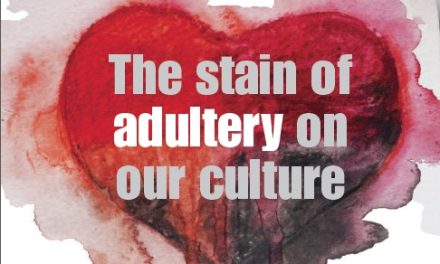Last week I wrote an article here entitled “4 Words that Would Change the Internet,” in which I discussed how much disagreement, conflict, and disunity we could avoid if we all gave each other the benefit of the doubt. Instead of reading something with a mind to make the worst possible assumption about someone, take the best view of them that you can. Oddly enough, just two days later an article was written marking me and leading some to call into question all of the work of Focus Press and the Focus Press Blog. This “rebuttal article” gives us the perfect opportunity for a case study on what it really means to do things in a Christian manner and give the benefit of the doubt.
Read the following section from a previous FPBlog article, given without context.
Is it a sin to skip worship times, even Sunday nights or Wednesday nights?
Is it a sin to drink alcohol?
Is it a sin to gamble?
For each of these issues (and a number of others) you can make Scriptural arguments on either side.
Here’s where we can apply this idea of giving the benefit of the doubt. Those who aren’t interested in giving the benefit of the doubt might read that to say: “Jack’s saying, ‘If someone goes to the casino on a Saturday night, gets drunk, and sleeps through Sunday morning worship, we can’t say it’s wrong.'” On the other hand, the overwhelming majority of our readers gave the benefit of the doubt, taking it to mean that if a person has to miss a single worship service for events out of their control, we don’t need to browbeat them for it. Drunkenness is a sin, but whether or not drinking even a sip is a sin is an issue that has been debated by faithful brethren for decades and has advocates on both sides of the issue. The same can be said for gambling. To point these things out, however, is not an endorsement of going out and doing any of those things, as it has been painted to be. It’s also not denying the idea that there are sins in general, as some have claimed. And it is also not reflective of the author’s personal behavior.
Those who don’t believe in giving the benefit of the doubt read the article as one that was trying to find all kinds of loopholes to let people sin—and the slippery slope to liberalism. Those who read the article who are not in brotherhood attack mode, read it to say: we would be more holy if we stopped asking what would or wouldn’t be a sin and instead just tried to please God. Don’t ask if it’s a sin to skip worship, because when you do that worship becomes an obligation to stay out of hell. Instead, you attend to glorify God, making it something you want to do every single chance you get. Can you drink a sip of wine without violating the Bible’s clear commands against drunkenness? Maybe, but could it potentially dim your influence in the eyes of some, lessening your ability to glorify God? Then maybe you should think twice about it. The whole point was that the Bible doesn’t have to say “thou shalt not” for us to stay away from something, and yet that is being made out to be a liberal license to sin. It’s a completely backward understanding of what was said.
The bigger problem here is one I addressed in the original “4 Words” article, namely that there is a group among us that believes it is their job to keep the church pure by policing the internet, the lectureship brochures, and Christian publications, looking for any slight misstep that they can publicize and use to slam their brethren (and possibly elevate themselves in doing so). What ever happened to Ephesians 4’s call to be diligent to preserve the unity of the Spirit in the bond of peace? If you’ve reached the point where you’re purchasing Facebook advertising to call out a brother in the church without giving him the benefit of the doubt, you can’t claim you’re diligently pursuing unity and peace.
Yes, lines of fellowship have to be drawn when individuals are teaching false doctrine and error. But what happens when people decide it is their job/duty to police the brotherhood with the intent of marking people—rather than giving them the benefit of the doubt—or just picking up the phone and calling them? If we can agree on salvation, worship, women’s roles, and every major doctrine but can’t have fellowship because we disagree slightly over the interpretation of one issue, just how small is the fellowship of actual, approved believers?How little room for disagreement is there in the church, what are we allowed to disagree on and still be brethren, and how perfect must someone be in their maturity and grasp of the Scriptures in order to be saved? Is it our responsibility to make the narrow road even narrower, so that only a select few with perfect unity on every single issue can make it to heaven? Doesn’t Romans 14 show that there is room for disagreement and tolerance of our fellow Christians over some of these exact same issues?
If my interpretation of God’s Word is wrong on these issues, then I’ve said a sin isn’t a sin (something I would never knowingly do.) I admit that that’s a possibility, but that wouldn’t be the first area in which I’m imperfect. Sadly, some don’t allow for imperfections in the church. But isn’t that what God’s grace is for? On the other hand, if I’m right, then those who have opposed me have added their preconceived ideas to God’s Word, making the traditions of man into commandments. Yes, that would be a sin. However, it’s my belief that we’re both genuinely just seeking the path to heaven, and that they’ve misstepped on a small issue of interpretation. Since our entrance to heaven is dependent on Christ and not on our perfect understanding and perfect practice of every single point in the Scriptures (an impossibility), I have no problem saying that they are just as much under God’s grace as I am, even if I believe they are wrong.
As frustrating as this ordeal has been, I’m thankful for the opportunity it’s given me to give an active example of what I mean by giving each other the benefit of the doubt. I’m also grateful for the numerous brothers and sisters who read the original article and took the best possible interpretation of it. Ultimately, what we’re all trying to do is point people toward God and a greater knowledge of Him through His Word. Let’s remember that we’re all on the same team in this, and let’s show each other the love of Christ, the distinguishing mark of His people (John 13:34-35).
By Jack Wilkie



